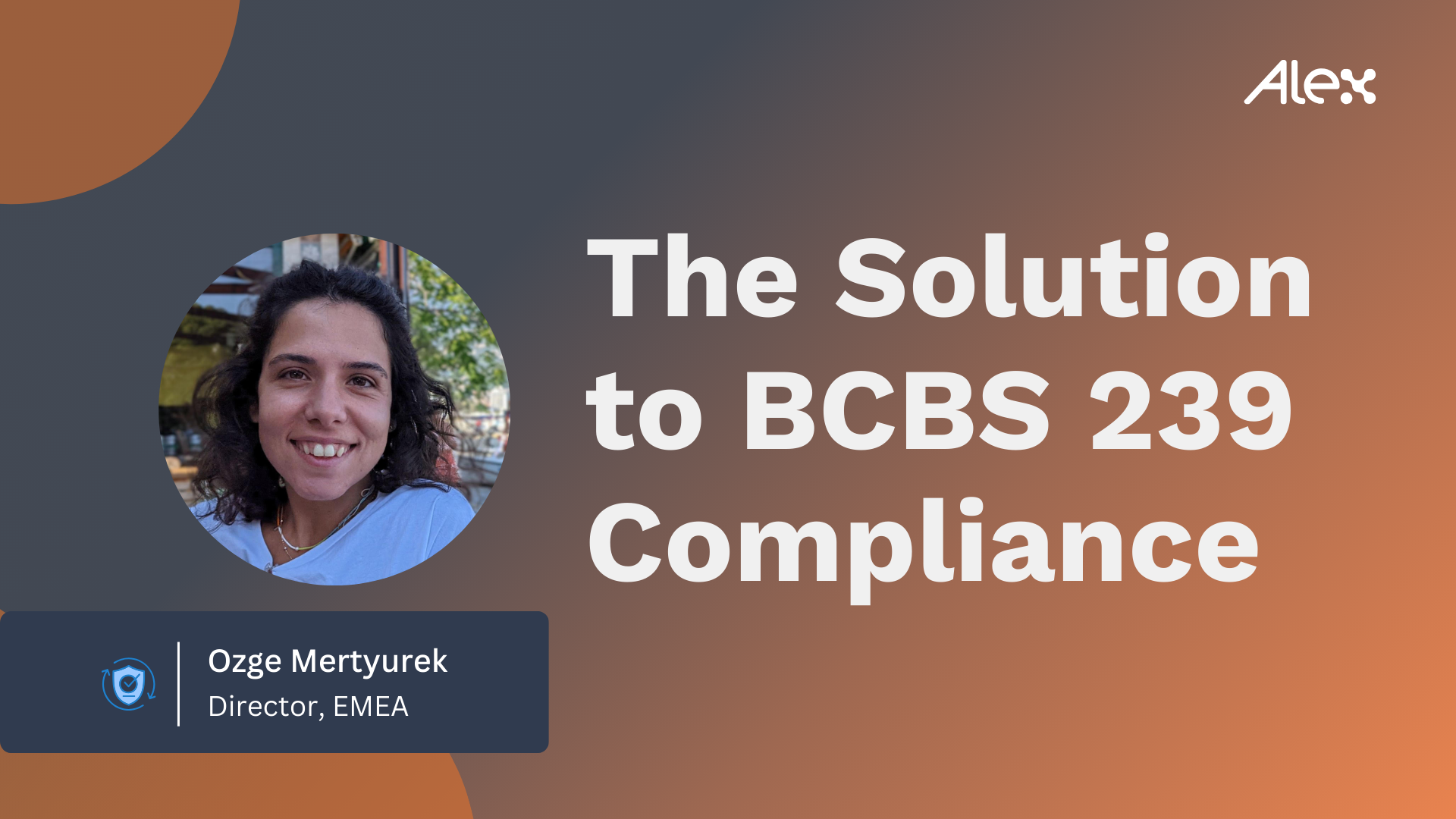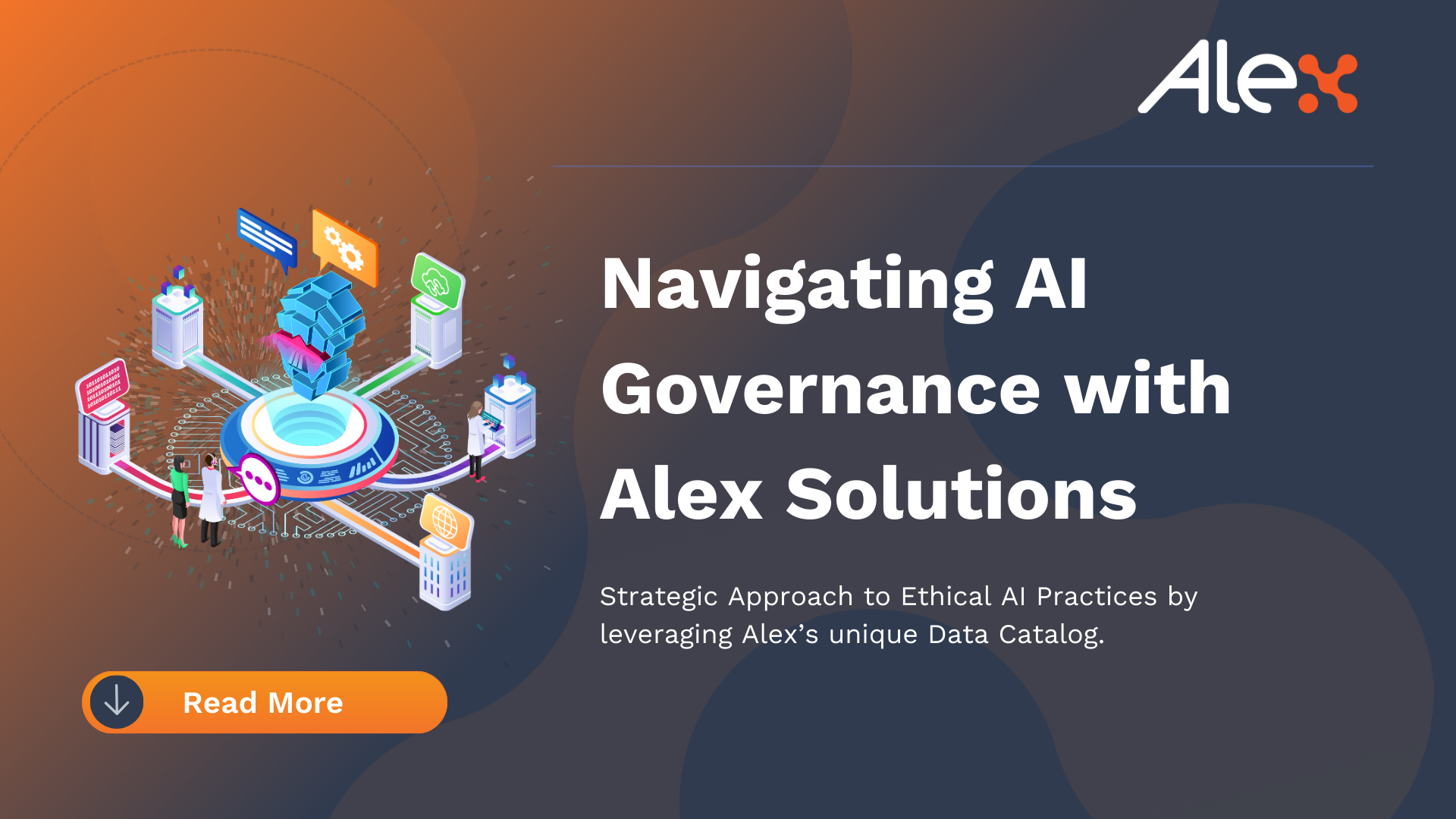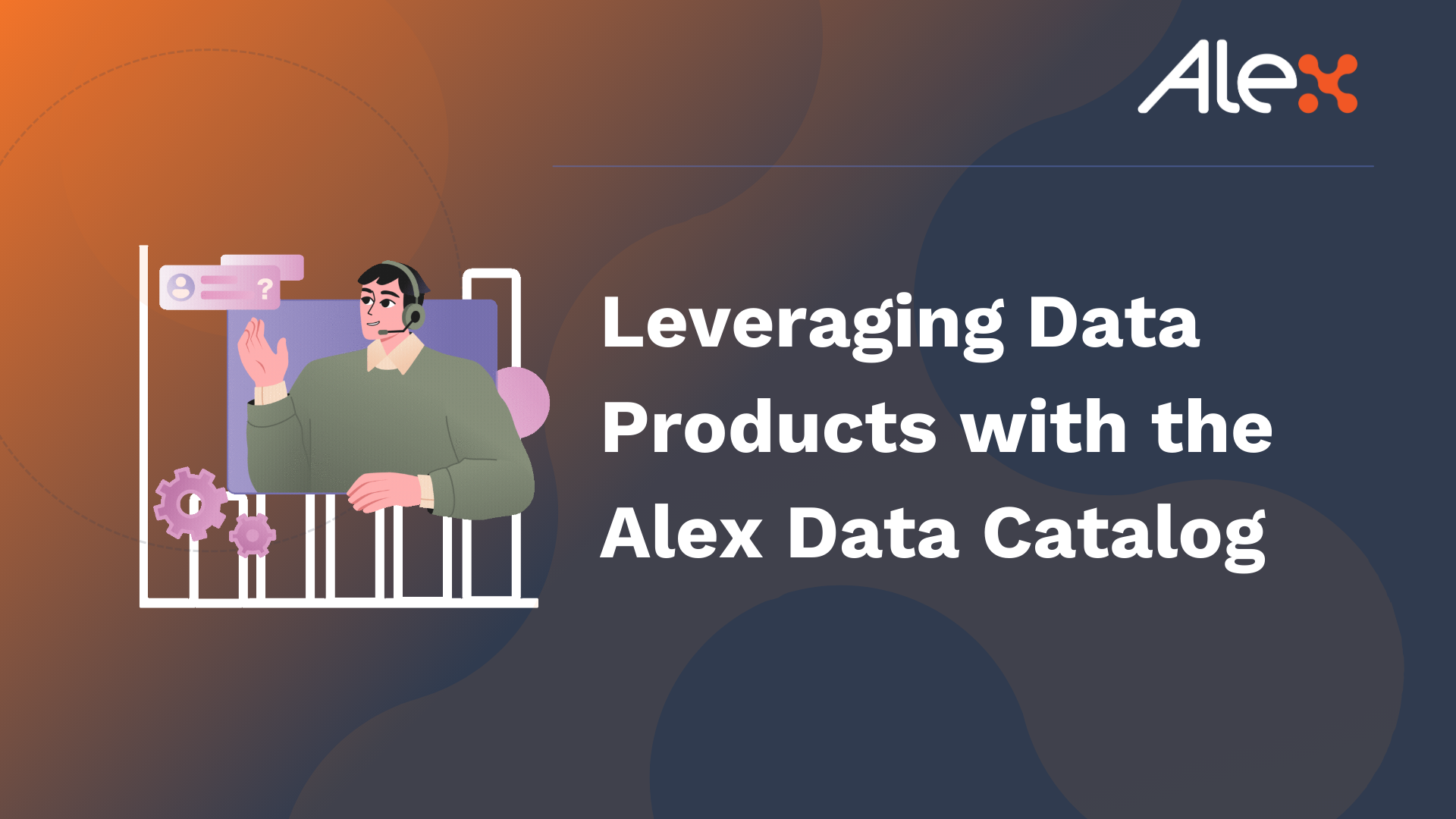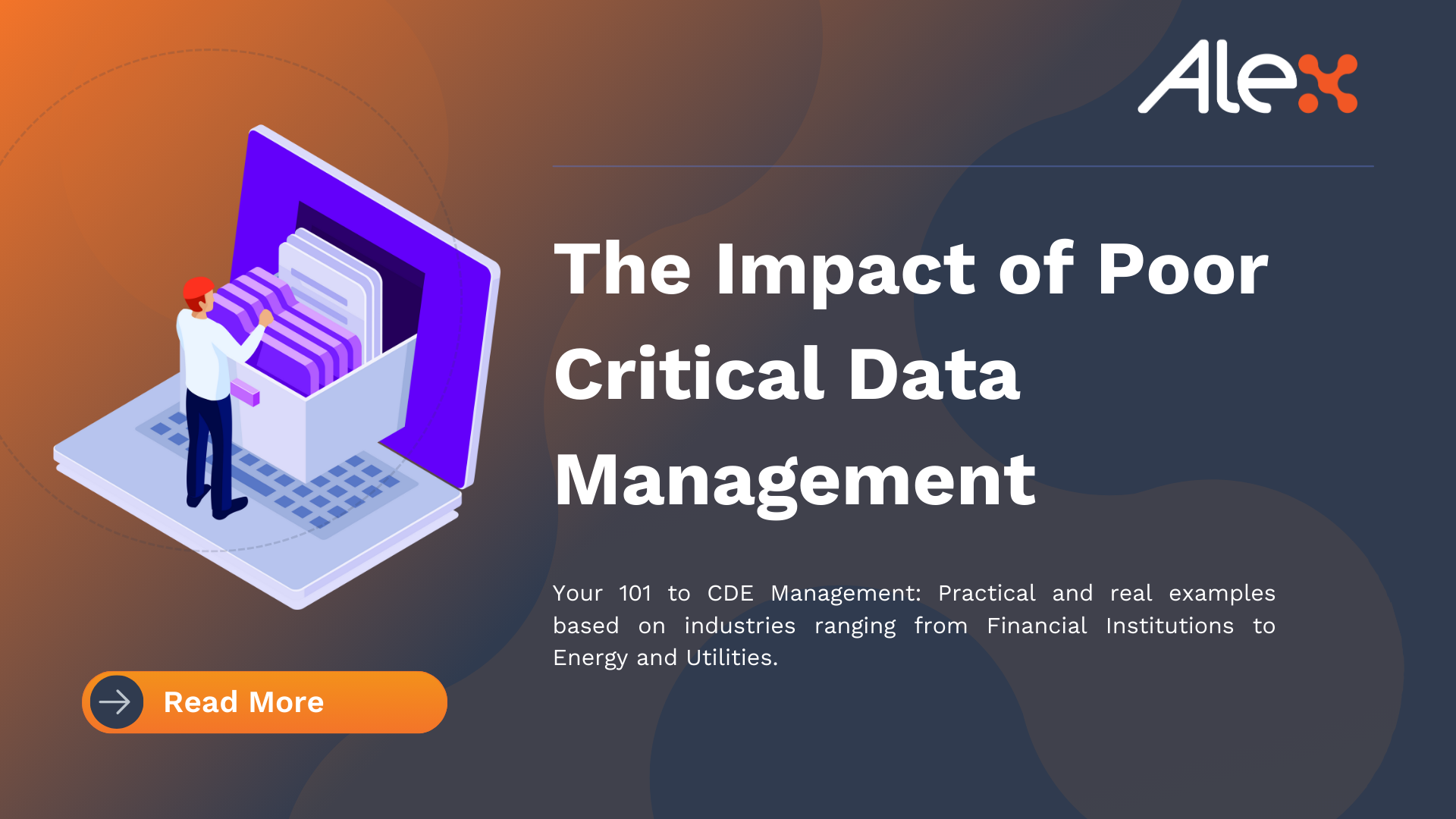As organizations embrace generative AI technologies to drive innovation and efficiency, the need for robust data governance becomes more critical than ever. However, the rapid evolution of generative AI has outpaced the development of governance frameworks, presenting several challenges that businesses must address to maximize AI effectiveness and control risks. In this article, we’ll explore these challenges and discuss how Alex Solutions, with its unified enterprise data governance platform, can help organizations navigate the complexities of the Generative AI age.
Lack of Guidelines about Generative AI Data Governance
Generative AI is still in its infancy, and as a result, established governance frameworks are lacking. This lack of guidelines poses a significant challenge for organizations looking to implement effective data governance strategies for generative AI. Without clear guidelines, organizations may struggle to implement effective data governance strategies, leading to potential risks and inefficiencies.
For example, consider a scenario where a marketing team uses a generative AI model to create personalized content for customers. Without clear guidelines on how to manage the data used by the AI model, the organization may inadvertently use sensitive customer information inappropriately, leading to privacy concerns and regulatory violations.
Alex Solutions’ unified enterprise data governance platform can help address this challenge by providing organizations with a structured approach to data governance. By leveraging Alex Solutions’ platform, organizations can access guidelines and best practices specifically tailored to the unique challenges of the Generative AI age. This can help organizations navigate the complexities of generative AI technologies more effectively and ensure that their data governance strategies are aligned with industry standards and best practices.
Lack of Visibility
Enterprise data today often resides in unstructured formats, scattered across emails, cloud applications, and databases. This lack of visibility makes it challenging to locate and organize data, especially when identifying sensitive information within this vast sea of data. Without proper visibility, organizations may struggle to ensure the security and integrity of their data, leading to potential compliance issues and data breaches.
Generative AI exacerbates this challenge by introducing new data sources and formats that may not be easily accessible or recognizable. For example, a generative AI model trained on text data may generate content that includes sensitive information, such as personal or financial data, without proper oversight.
The Alex platform offers advanced data discovery and classification capabilities, enabling organizations to locate and categorize data effectively, even in unstructured formats. By providing greater visibility into their data, organizations can better understand their data assets and ensure their protection.
Generative AI Data Governance and Lineage Concerns
AI models often operate in complex and sometimes mysterious ways, making it challenging to track the origin and lifecycle of data. This can lead to concerns about data quality and lineage, as organizations may struggle to ensure the accuracy and reliability of their data. Additionally, AI models often rely on unverified data sources, further complicating data governance efforts.
For example, consider a scenario where a healthcare organization uses a generative AI model to assist in diagnosing diseases. If the AI model relies on unverified or biased data sources, it may produce inaccurate or unreliable results, leading to incorrect diagnoses and patient harm.
Alex Automated Data Lineage feature provides organizations with a clear understanding of how data flows through their systems, ensuring data quality and traceability. By tracking the origin and lifecycle of data, organizations can ensure the accuracy and reliability of their AI models. This can help organizations address the challenges of data quality and lineage in the Generative AI age and ensure that their data governance strategies are effective and efficient.
Data Classification through Generative AI Data Governance
Effective data governance requires organizations to differentiate between sensitive, regulated information and data clutter. However, the vast amount of unstructured data can make this task challenging. Without proper data classification, organizations may struggle to implement the right controls and safeguards for their data, leading to potential compliance issues and data breaches.
Generative AI further complicates data classification by introducing new types of data that may not fit neatly into existing categories. For example, a generative AI model trained on customer feedback data may generate new insights that blur the line between personal opinions and actionable feedback, making it difficult for organizations to determine how to classify and act on this information.
Alex Intelligent Business Glossary helps organizations standardize their business language and definitions, enabling better categorization and management of data. By providing a centralized repository of business terms and definitions, organizations can ensure consistency and accuracy in their data classification efforts. This can help organizations address the challenges of data classification in the Generative AI age and ensure that their data governance strategies are effective and efficient.
Data Mapping with the help of Generative AI Data Governance
Successful data mapping is crucial for understanding how data is used and ensuring compliance with regulations. However, manual processes and data silos often hinder successful data mapping efforts, especially when dealing with the complexities introduced by generative AI.
For example, consider a scenario where a financial institution uses a generative AI model to automate trading decisions. If the AI model generates trading signals based on inaccurate or incomplete data, it may lead to financial losses and regulatory scrutiny.
To address this challenge, organizations can leverage the automated data lineage mapping provided by the Alex platform. Automated lineage helps simplify the data mapping process, ensuring accuracy and compliance with regulations. By implementing Alex, organizations can ensure that their data governance strategies are effective and efficient in the Generative AI age.
Data Security
Sharing sensitive information with AI models can lead to data leaks and compliance issues. Ensuring data security is crucial in the Generative AI age, where the consequences of data breaches can be severe. Organizations must implement robust data security measures to protect their data and mitigate the risks associated with sharing sensitive information with AI models.
For example, consider a scenario where an organization uses a generative AI model to generate customer recommendations. If the AI model is not properly secured, it may inadvertently expose sensitive customer information, leading to reputational damage and legal consequences.
The Alex platform offers robust data security features, ensuring that sensitive information is protected and not inadvertently shared with unauthorized users. By implementing these security measures, organizations can mitigate the risks associated with sharing sensitive information with AI models and ensure that their data governance strategies are effective and efficient in the Generative AI age.
Ethical Concerns
AI models trained on biased datasets can perpetuate unfair biases, leading to ethical concerns. To address this challenge, organizations need to monitor and mitigate bias in their AI models effectively. This can be challenging, especially in the context of generative AI, where the complexity of AI models can make it difficult to identify and address biases.
For example, consider a scenario where an HR department uses a generative AI model to screen job applicants. If the AI model is trained on biased data, it may unfairly discriminate against certain groups of applicants, leading to potential legal challenges and damage to the organization’s reputation.
In the context of ethical concerns, the Alex platform provides tools and features to help organizations monitor and mitigate bias in their generative AI models. For example, the platform offers fully configurable, automated algorithms that can identify potential biases in AI models based on the parameters you want to apply to the training data. By leveraging Alex, organizations can ensure that their generative AI models are fair, transparent, and free from bias, addressing ethical concerns and promoting responsible AI development.
In conclusion, the adoption of generative AI presents unique challenges for enterprise data governance. However, with the right tools and strategies in place, organizations can effectively navigate these challenges and unlock the full potential of generative AI. Alex Solutions’ unified enterprise data governance platform offers a comprehensive solution for managing data in the Generative AI age, enabling organizations to adapt to the evolving landscape of AI technologies.




